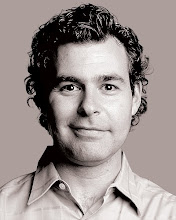Twitter is giving new life to the World Series of Poker
By STEVE FRIESS (a.k.a. @TheStripPodcast)
On Saturday, when I had planned to hang out at the Rio taking in some World Series of Poker action, I found myself stuck in the squalid Meineke waiting area, learning that my long-term neglect of my brakes and muffler was going to cost me dearly.
There was, however, a bright spot. As it happened, Saturday was the day at the World Series’ $10,000 Buy-In No-Limit Texas Hold ’Em Main Event when the “money bubble” burst—when the field was reduced to the point where everyone still in the tournament is guaranteed to receive at least $21,365. In this case, it was when the field of 6,494 players had been whittled to just 648. It’s a pretty fun moment of celebration when the 649th-place player busts out and everyone left cheers their common successes.
I wasn’t there, but I had the next best thing: World Series of Poker Commissioner Jeffrey Pollack’s Twitter feed. In real time, @JeffreyPollack was blasting out 140-character-or-less updates on what was happening. It got interesting, too, as the field narrowed and then hung at 649 through 12 tense hands during which nobody was eliminated. None of the details about the game mattered so much as the suspense, that feeling that something important—to someone, anyhow—was about to happen, and that if we couldn’t be there, this was the next best thing.In the modern poker era, there have been several developments responsible for the game’s enormous growth and maturity. The film Rounders made it cool among college kids. The hole-card camera made it interesting for TV viewers. The Internet made it easy for millions to play. And everyman Chris Moneymaker’s 2003 WSOP championship made it an accessible glory for all of the above.
Now, I submit, the rise of tweeting poker players will someday be viewed as another turning point. Twitter solves some important problems for the WSOP. First, it gives people who cannot attend an easy, brief and mobile way to keep up as the action is happening, important because you can usually watch every other sport on TV live during the competition, but not poker, because gambling laws prohibit that. Suddenly, the WSOP isn’t something for just the heartiest fans to follow on poker sites but an event revealing itself as we go about our days.Read the rest at LasVegasWeekly.com.








0 comments:
Post a Comment